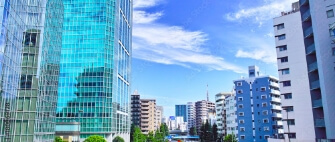Canadian International School Tokyo

Canadian International School (hereinafter referred to as CIS) was founded in 1999 by two of its present directors. In Japan CIS is recognised by the Japanese Ministry of Culture, Sports and Education, so that CIS high school graduation is recognised for those students who apply to enroll in Japanese universities.
History
Canadian International School (hereinafter referred to as CIS) was founded in 1999 by two of its present directors. Contact was established with the Department of Education of the Canadian province of Prince Edward Island to adopt that province’s curriculum at CIS. CIS is accredited annually with an onsite inspection by officials from the Department of Education in Prince Edward Island.
CIS is an accredited pre-kindergarten to Grade 12 Canadian school. CIS received final authorisation for the International Baccalaureate Primary Years Program (IB PYP) in 2009. In Japan CIS is recognised by the Japanese Ministry of Culture, Sports and Education, so that CIS high school graduation is recognised for those students who apply to enroll in Japanese universities. CIS is a member of the Japan Council of International Schools and the Tokyo Association of International Preschools.
Learning

The educational model used for preschool and kindergarten education at CIS is based on the belief that learning and playing in an enriched environment from a young age will give students opportunities to realise their potential in social, academic and physical needs. During these years students work with teachers who focus on the needs of students, recognising that intelligence manifests itself in many ways and thus must be developed and fostered using many teaching strategies.
Elementary School
Elementary curriculum areas include English language arts, Japanese, mathematics, science, social studies, art, music, technology education, physical education, and health. In addition to traditional subject area teaching, learning activities are structured to provide integrated learning units. Students are encouraged to consider how subject areas are connected and how knowledge is structured. These integrated units provide opportunities for students to both excel in their areas of strength and receive support in other areas.
Junior High School

In the junior high program students are exposed to the sub categories within science, health, mathematics, social studies, English language arts, Japanese, art, music and physical education. Teachers also ensure that student technology skills are developed along with the subject specific skills in each subject area. English language arts provides students with opportunities to study specific genres of literature, such as poetry, short stories, novels and essays often using technology as a learning tool. Throughout the English program speaking, listening, reading, writing, viewing, and representing skills are further developed.
HIgh School
During high school students complete a planned sequence of core and elective courses which can be selected to reflect a student's personal interests. At CIS students will earn high school credits resulting in a Canadian academic high school graduation diploma. This academic graduation also provides students with post secondary entrance requirements for many Canadian and other universities. Significant student personal academic counseling is provided as students make these course selections and begin outlining their post secondary interests.
Other opportunities at CIS include the provision of advanced placement (AP) exams, from the College Board of the United States in some grade 12 subject areas. These exams written in the spring of each academic school year can provide students with post secondary academic credits and/or placement in many North American universities.
Culture

CIS is focused on maximising student achievement and personal growth. They believe that everyone has right to a safe, supportive and caring learning environment. Students work best in an environment where they are treated with respect and have a clear understanding of expectation, rules and consequences. This process will encourage students to take ownership for their own behaviour and academic progress, thereby lifelong learning.
Access
Transportation:
Osaki Sta. (7 min)
Properties with easy access to Canadian International School Tokyo
-

LA TOUR SHIBAKOEN
JPY 318,000~1,220,000
1~3BR
62.89~168m²
Mita Line Shibakoen Sta. (2 min)
-

KDX RESIDENCE SHIBAKOEN
JPY 85,000~220,000
Studio~1BR
22.96~45m²
Mita Line Shibakoen Sta. (2 min)
-

LA TOUR SHIBAKOEN II
JPY 307,000~1,800,000
1~3BR
62.91~201m²
Mita Line Shibakoen Sta. (2 min)
-

WORLD TOWER RESIDENCE
JPY 348,000~1,150,000
1~3BR
40.15~81m²
JR Yamanote Line Hamamatsucho Sta. (2 min)
